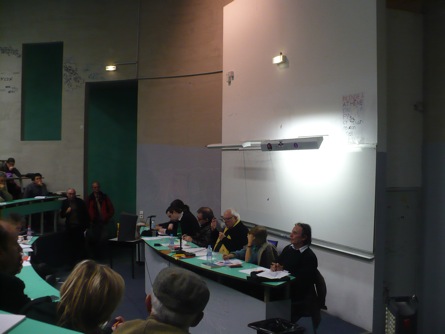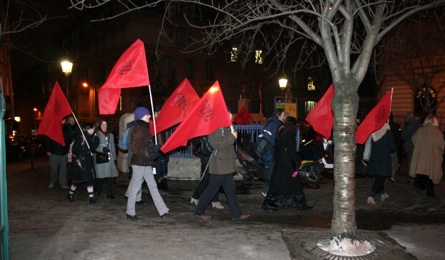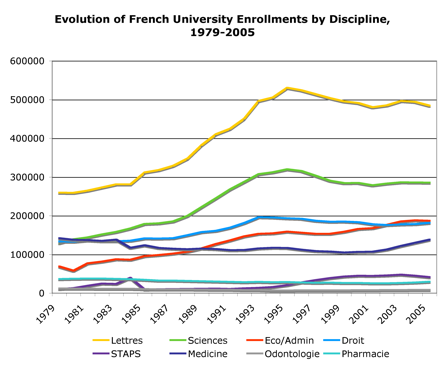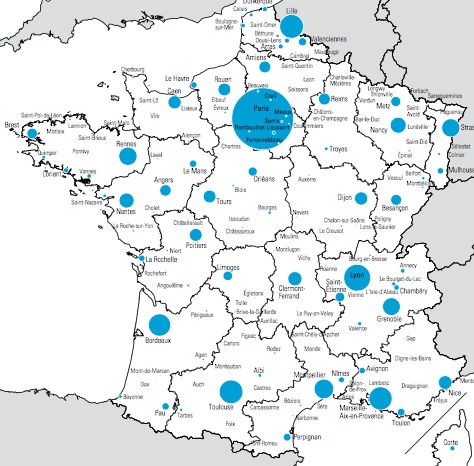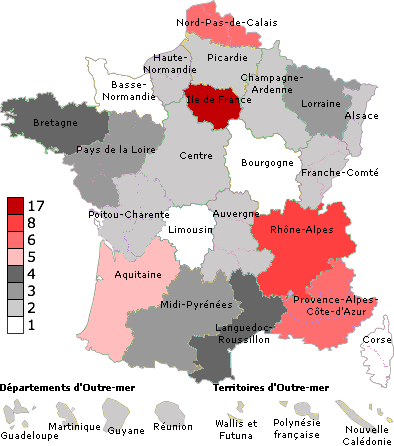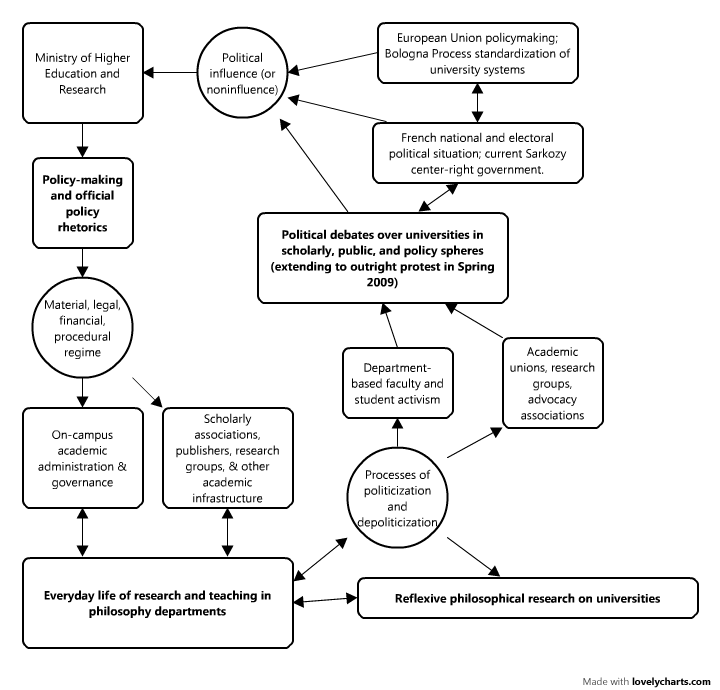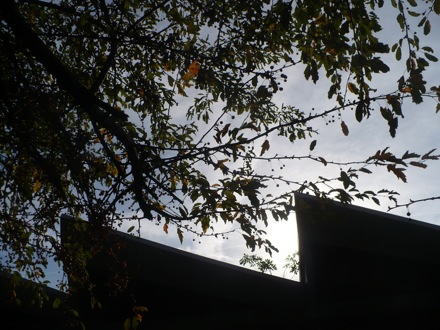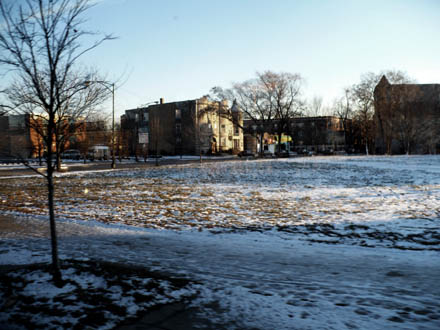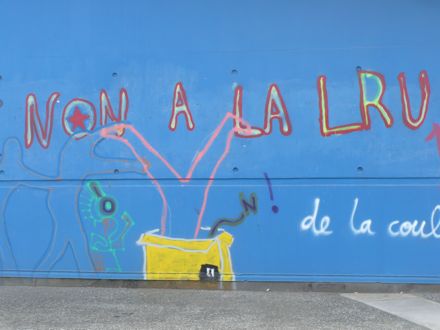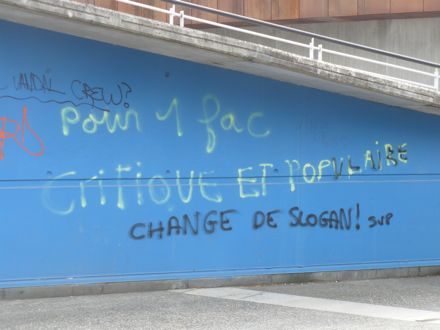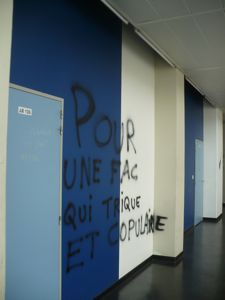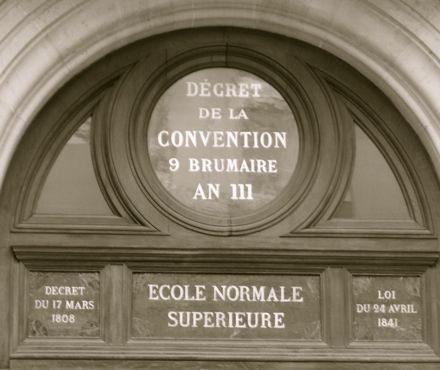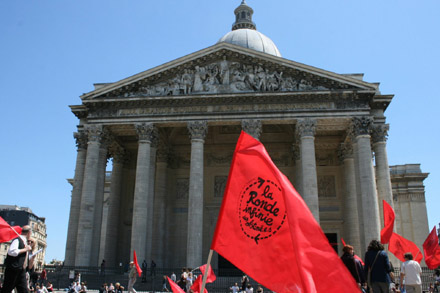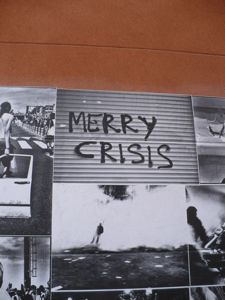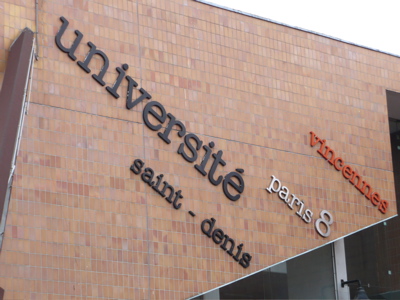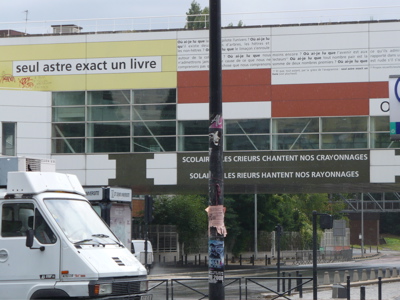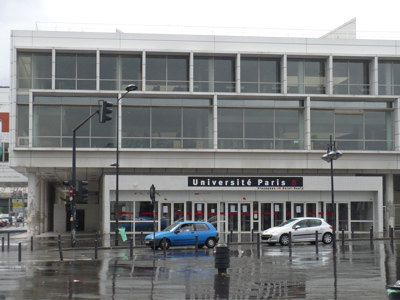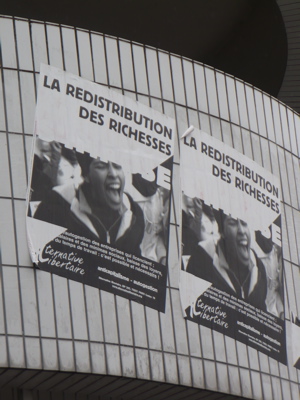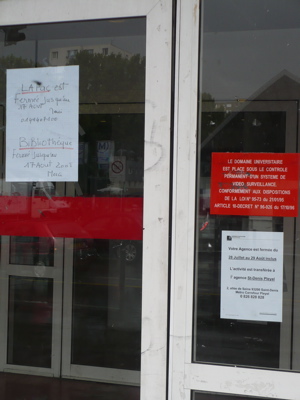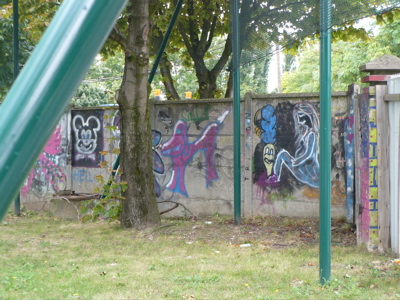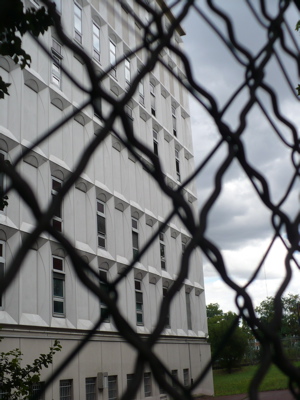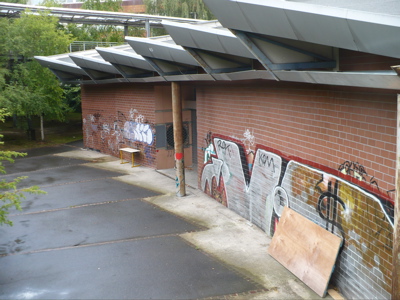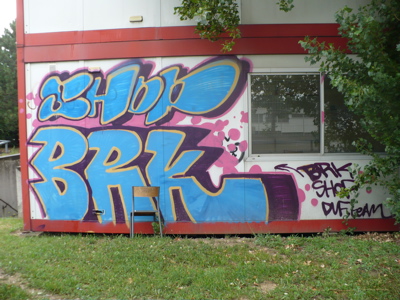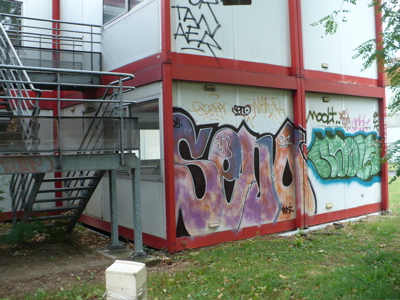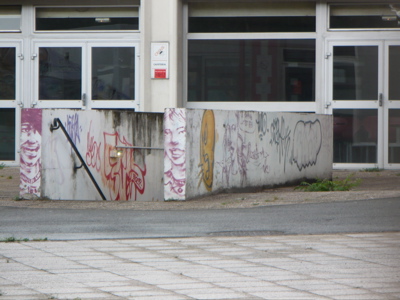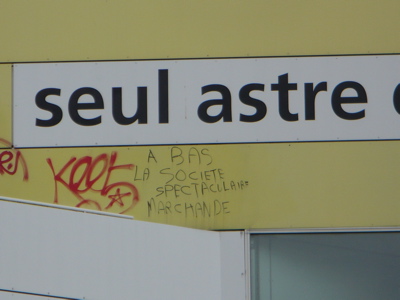A couple of weeks ago, there was a big conference on communism at Paris-8. I went to an afternoon session that had Etienne Balibar and Alex Callinicos, curious to hear what kind of intellectual project could be made out of communism in these post-Soviet, often antisocialist, and post-20th-century days. The conference took place in a big, decrepit lecture hall in Bâtiment B. It looked like this:
A raised table, poorly lit by a fluorescent lamp shining on the whiteboard and a dim incandescent light aimed high on the wall & accomplishing nothing. Two microphones, passed back and forth between panelists. Debris of paper and waterbottles. Notebooks. Five men, one woman. Semi-formal dress: coats and jackets, Balibar in a vast yellow scarf, collars peeking out from unbuttoned shirts. Some are leaning back, the two to the left seem to be maybe whispering to each other, a couple take notes, the man at right stares out into space hands clasped as if the audience weren’t even there. (We will come back to this point.)
